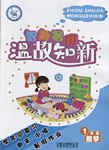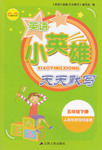题目内容
British Summer Time runs from the last Sunday in March to the last Sunday in October. In the depths of winter the nights in the UK are anything from 15-19 hours long. Longer nights mean frost and fog are more likely to form.
Twice a year the clocks change, forward in the spring and then back again in the autumn. But why? It happens twice a year. We all change our clocks and watches by one hour. In the spring, we add an hour, and go onto what is called British Summer Time, while in the autumn, we do the reverse, and return to Greenwich Mean Time.
Why bother?
It’s all to do with saving the hours of daylight, and was started by a guy called William Willett, a London builder, who lived in Petts Wood in Kent. Basically, he figured that you could improve the population’s health and happiness by putting forward the clocks by twenty minutes every Sunday in April and do the opposite in September.
Economics
His idea was not taken up, even though a “Daylight Saving Bill” was introduced some five years before the outbreak of World War One. But once the war started, it was considered wise to economics, to promote greater efficiency in using daylight hours, and in the use of artificial lighting. And so in 1916, “Daylight Saving Time” was introduced. Even though most countries abandoned this after that war, some eventually decided that it was a good idea, and most of these nations began to keep it throughout the year.
Experiment
Since 1972, Britain has decided to go with Greenwich Mean Time in winter, and British Summer Time in Summer.
But back in 1968, Britain tried a four-year experiment by advancing time one hour ahead of GMT throughout the year.
But those living further north, particularly in Scotland, found it most unsatisfactory, with dark mornings for much of the year, and the experiment was dropped.
But the arguments go on …and on.
小题1:Why some countries decide to change the clocks after World War One?
小题2:What can you infer from the passage?
小题3:What is the real meaning of the last sentence of the passage?
Twice a year the clocks change, forward in the spring and then back again in the autumn. But why? It happens twice a year. We all change our clocks and watches by one hour. In the spring, we add an hour, and go onto what is called British Summer Time, while in the autumn, we do the reverse, and return to Greenwich Mean Time.
Why bother?
It’s all to do with saving the hours of daylight, and was started by a guy called William Willett, a London builder, who lived in Petts Wood in Kent. Basically, he figured that you could improve the population’s health and happiness by putting forward the clocks by twenty minutes every Sunday in April and do the opposite in September.
Economics
His idea was not taken up, even though a “Daylight Saving Bill” was introduced some five years before the outbreak of World War One. But once the war started, it was considered wise to economics, to promote greater efficiency in using daylight hours, and in the use of artificial lighting. And so in 1916, “Daylight Saving Time” was introduced. Even though most countries abandoned this after that war, some eventually decided that it was a good idea, and most of these nations began to keep it throughout the year.
Experiment
Since 1972, Britain has decided to go with Greenwich Mean Time in winter, and British Summer Time in Summer.
But back in 1968, Britain tried a four-year experiment by advancing time one hour ahead of GMT throughout the year.
But those living further north, particularly in Scotland, found it most unsatisfactory, with dark mornings for much of the year, and the experiment was dropped.
But the arguments go on …and on.
小题1:Why some countries decide to change the clocks after World War One?
| A.To improve the people’s health and happiness. |
| B.To do a certain experiment |
| C.To save energy to develop economies. |
| D.All of the above. |
| A.The idea of changing the clocks suffered disagreement. |
| B.The people in Scotland don’t change the clocks. |
| C.The idea was first thought of by an educator. |
| D.It’s unnecessary to change the clocks. |
| A.Nobody in the UK likes the idea. |
| B.All things need arguments. |
| C.The British are fond of arguments. |
| D.Different views of the idea still exist. |
小题1:C
小题2:A
小题3:D
试题分析:本文讲述了英国从三月的最后一个星期天到十月的最后一个星期天实行夏令时。文章分析了为什么这样做的原因和好处,及对“夏令时”的一些不同看法。
小题1:从第三段it was considered wise to economics, to promote greater efficiency in using daylight hours, and in the use of artificial lighting可知一战后一些国家采用“夏令时”目的是促进经济的发展,更有效的利用白天的时间同时减少人工灯光的使用,从而节约能源,故选C
小题2:从文章倒数第二段及最后一段可知,对于采用“夏令时”这一实验,有些地区的人们相当不满,因而争论在不断继续,故选答案A
小题3:文章最后一段的意思是有关夏令时”争论在不断继续。故选D答案。AB选项意义太绝对,故排除,C选项表述不对。
点评:本文讲述了英国从三月的最后一个星期天到十月的最后一个星期天实行夏令时。文章分析了为什么这样做的原因和好处,及对“夏令时”的一些不同看法。文章主要考查细节题和推理题。要求考生在阅读时体会字里行间的言外之意

练习册系列答案
 智趣暑假温故知新系列答案
智趣暑假温故知新系列答案 英语小英雄天天默写系列答案
英语小英雄天天默写系列答案
相关题目